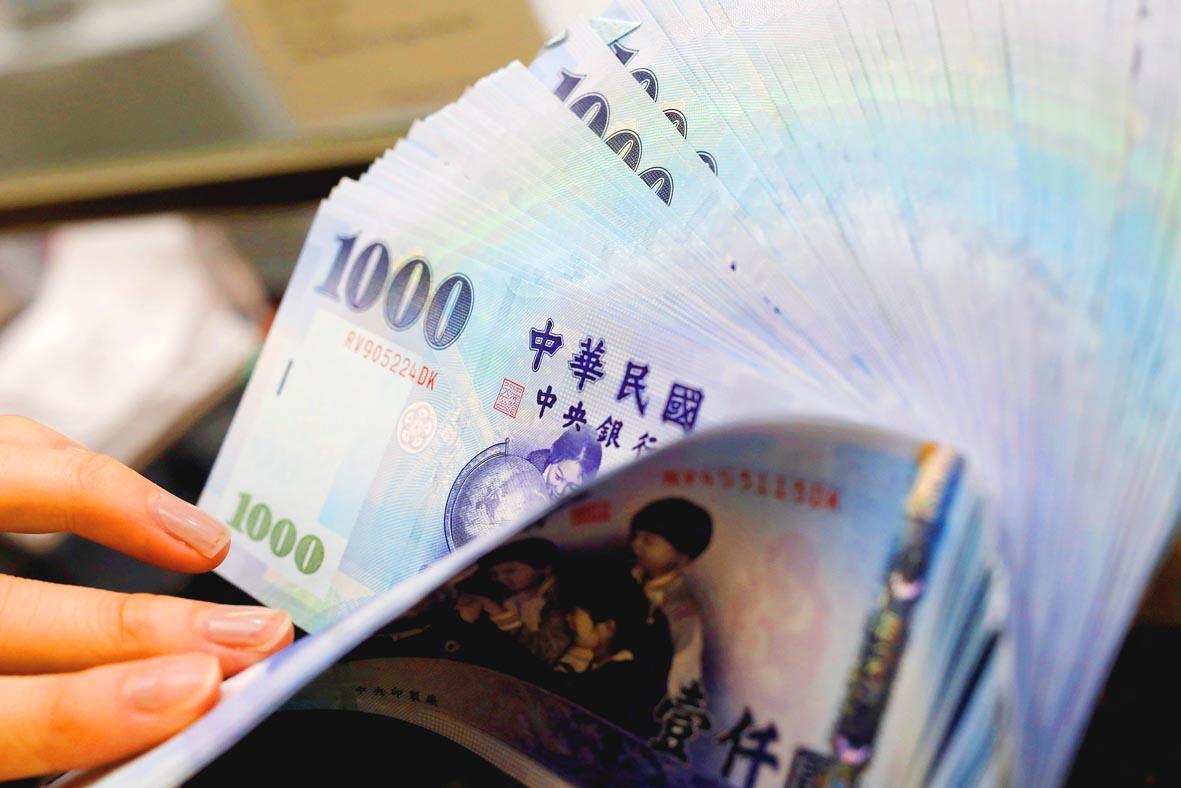The US Department of the Treasury on Wednesday added Taiwan to a list of countries being monitored for currency manipulation, the first time the nation has made the list since 2017.
The department issued its semiannual report to the US Congress on the policies of the US’ top 20 trading partners, which said that Vietnam and Switzerland had met the criteria for being labeled currency manipulators.
The manipulator designation has no specific or immediate consequence, beyond short-term market impacts, but US law requires the government to engage with the listed nations to address the perceived exchange-rate imbalance.

Photo: Tyrone Siu, Reuters
Penalties, including exclusion from US government contracts, could be applied after a year if the label is not removed.
Taiwan made it to the list of nations being monitored, along with India and Thailand, joining China, Japan, Singapore, South Korea, Germany, Italy and Malaysia, which were named in previous reports.
The department’s report, Macroeconomic and Foreign Exchange Policies of Major Trading Partners of the United States, states that a nation can be identified as a currency manipulator if it has a bilateral trade surplus with the US of at least US$20 billion, a current account surplus in excess of 2 percent of its GDP, and has engaged in persistent, one-sided intervention in the foreign exchange market. Taiwan met two of these criteria, it said.
First, Taiwan’s “persistently large current account surplus” — meaning that the value of its exports exceeds the value of its imports — reached 10.9 percent of GDP over the four quarters through June, the report said.
Taiwan’s bilateral trade surplus with the US expanded sharply during this period, rising to US$25 billion from US$18 billion the year before, the report said.
The report said that Taiwan had publicly disclosed its foreign exchange intervention in March, and encouraged it to “allow the New Taiwan dollar to appreciate to help reduce its large and durable external surpluses.”
“The Treasury welcomes Taiwan’s recent steps toward transparency and looks forward to continued efforts in this area,” it added.
The department usually publishes the assessment report in April and October, but had delayed its April report until Wednesday because of the COVID-19 pandemic.
Economies on the list must remain there for at least two consecutive reports to help ensure that any improvement “is durable and is not due to temporary factors.”
The last time Taiwan was on the monitoring list was from April 2016 to April 2017, while it was cited as a currency manipulator in 1988 and in 1992.
Additional reporting by Bloomberg

In Italy’s storied gold-making hubs, jewelers are reworking their designs to trim gold content as they race to blunt the effect of record prices and appeal to shoppers watching their budgets. Gold prices hit a record high on Thursday, surging near US$5,600 an ounce, more than double a year ago as geopolitical concerns and jitters over trade pushed investors toward the safe-haven asset. The rally is putting undue pressure on small artisans as they face mounting demands from customers, including international brands, to produce cheaper items, from signature pieces to wedding rings, according to interviews with four independent jewelers in Italy’s main

Macronix International Co (旺宏), the world’s biggest NOR flash memory supplier, yesterday said it would spend NT$22 billion (US$699.1 million) on capacity expansion this year to increase its production of mid-to-low-density memory chips as the world’s major memorychip suppliers are phasing out the market. The company said its planned capital expenditures are about 11 times higher than the NT$1.8 billion it spent on new facilities and equipment last year. A majority of this year’s outlay would be allocated to step up capacity of multi-level cell (MLC) NAND flash memory chips, which are used in embedded multimedia cards (eMMC), a managed

Japanese Prime Minister Sanae Takaichi has talked up the benefits of a weaker yen in a campaign speech, adopting a tone at odds with her finance ministry, which has refused to rule out any options to counter excessive foreign exchange volatility. Takaichi later softened her stance, saying she did not have a preference for the yen’s direction. “People say the weak yen is bad right now, but for export industries, it’s a major opportunity,” Takaichi said on Saturday at a rally for Liberal Democratic Party candidate Daishiro Yamagiwa in Kanagawa Prefecture ahead of a snap election on Sunday. “Whether it’s selling food or

In the wake of strong global demand for AI applications, Taiwan’s export-oriented economy accelerated with the composite index of economic indicators flashing the first “red” light in December for one year, indicating the economy is in booming mode, the National Development Council (NDC) said yesterday. Moreover, the index of leading indicators, which gauges the potential state of the economy over the next six months, also moved higher in December amid growing optimism over the outlook, the NDC said. In December, the index of economic indicators rose one point from a month earlier to 38, at the lower end of the “red” light.